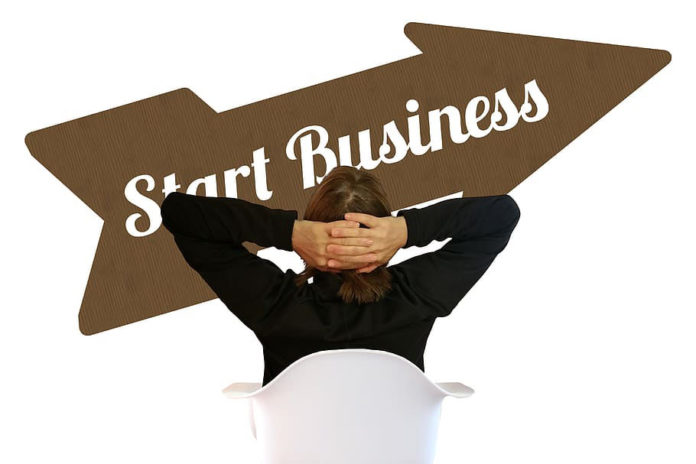
In addition to growing my tax preparation business, I’ve had the good fortune to work with Small Business Assistance Program (SBAP) clients at the Greater Vancouver Chamber of Commerce. Unlike many small businesses who join the GVCC when they are ready to open their doors, our SBAP clients typically were in the formative stages of their businesses.
If you are new to starting a business or just thinking about starting a business, here are a few pointers taken from my work with our SBAP clients.
Before you spend a dime, create a business plan. It doesn’t have to be complex or polished, but you want to get details down on paper about your products and services, your market, how you connect with your market, resources and business partners, and revenues and expenses. The Business Model Canvas (https://en.wikipedia.org/wiki/Business_Model_Canvas) is a simple one-page business plan we’ve used at the Chamber to help our clients effectively plan their startups.
A corollary rule to remember is that cash is king. I’ve seen too many business owners spend small fortunes opening their firms, just to close six months later when they ran out of cash. Building business revenues takes time. No one will lend you money if you aren’t making a profit, and you don’t want to exhaust your savings making your business sustainable. Make a financial plan and stick to it.
Next, what type of business structure do you want for your business? The choices are relatively simple, and not necessarily set in stone.
For most business startups, the IRS gives you four choices: Sole Proprietorship, Partnership, S-Corporation and C-Corporation. Net profits or losses from sole proprietorships, partnerships and S-Corps flow through to owners for inclusion on their personal tax returns. C-Corporation after-tax profits are distributed to shareholders through dividends.
If you’re concerned about losing your home if someone sues your business, Washington state gives you the ability to form your business as a Limited Liability Company (LLC) or Professional Limited Liability Company (PLLC) to shield your personal assets from your business liabilities. Partnerships and S-Corps also offer some liability protection.
Sole Proprietorships and Single-Member LLCs are the simplest and least costly business types to form and operate. Partnerships are great for two or more partners wanting to create a business together but are more expensive to form than sole proprietorships. S-Corps can let employee/shareholders receive reasonable wages, and possibly avoid self-employment taxes on some or all of their additional profits.
If you want your business to be an LLC, a Limited Partnership, Limited Liability Partnership or a Corporation, your next step should be to go to the Washington Secretary of State’s website (https://www.sos.wa.gov) to file the appropriate formation paperwork.
For all business types, the next step is to head over to the Washington Department of Revenue (DOR) (https://www.dor.wa.gov) to register your business and get your Unified Business Identifier (UBI), Washington state’s tax identification number. Depending upon your business location, DOR will also handle your local jurisdiction business licensing. Depending upon your business type, you also need to make sure your industry specific licensing is handled.
The last stop is to go to the Internal Revenue Service’s website (https://www.irs.gov) to apply for an Employer Identification Number (EIN). This is required for separate entities like Partnerships, S-Corps and C-Corps, but optional for sole proprietorships, and will help protect your social security number.
Lastly, get a business banking account, find a good bookkeeper or CPA to help setup your financial records and setup a good system for keeping copies of all your receipts. It makes all the difference in the world at tax time and your tax preparation professional will love you for it, and it will make a difference if the IRS ever comes knocking on your door.
These have been just a few pointers to help get you started down the right path towards success in your first business venture, and I have only begun to scratch the surface. In addition to all of the Chamber’s great resources, there are several other organizations in Southwest Washington that are aimed at helping startups get off the ground and helping existing businesses refine their business strategies an locate helpful resources.
My three favorite other organizations for business support are SCORE, the Washington Small Business Development Center (WSBDC) and the Hispanic Metropolitan Chamber. All of their business support programs are funded through federal or state grants, and all offer free or low-cost guidance and education. SCORE is staffed solely by experienced volunteers and can be reached by phone at 360-545-3210 or email at Vancouver@scorevolunteer.org. The local WSBDC representative is Jerry Petrick, who can be reached at 360-952-4987 or jerry.petrick@wsbdc.org. The small-business contact at the Hispanic Metropolitan Chamber is Andrea Forstag, who can be reached at aforstag@hmccoregon.com or 360-450-9044.
Paul Montague is an enrolled agent with Paul Montague Tax Preparation, LLC. He can be reached at 360-910-1218.






